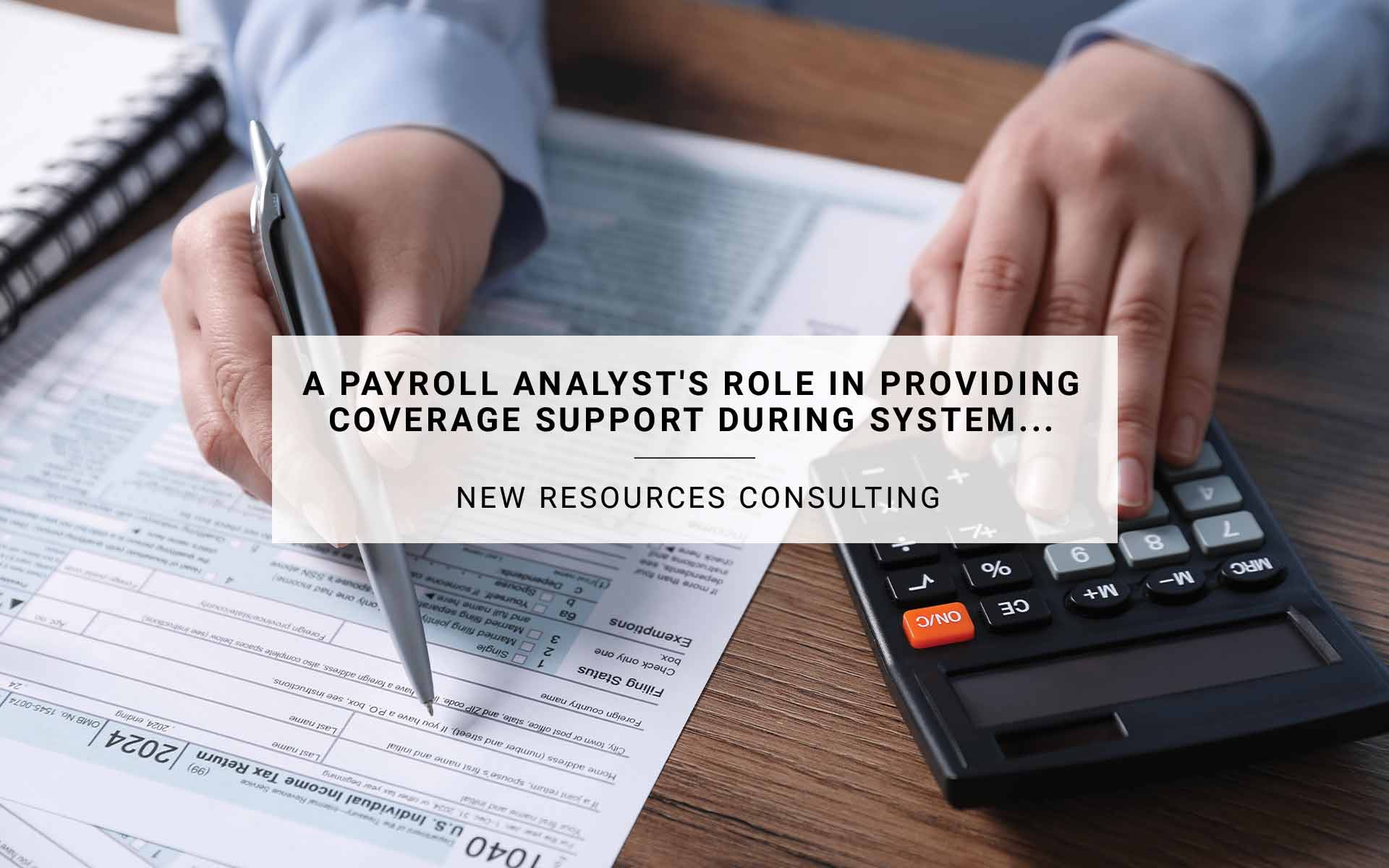The Challenge of Transformation
When organizations undertake major HR or payroll system migrations—such as to Workday, Oracle, or another leading industry platform—the focus of internal HR and payroll teams naturally shifts to project work, including data conversion, configuration, testing, validation, and implementation. These phases can span several months, requiring constant review, coordination, and collaboration.
Yet, with all this activity behind the scenes, payroll itself cannot be paused. Employees still need to be paid accurately and on time, no matter how complex the system migration becomes. That’s where the role of a Payroll Analyst providing coverage support becomes essential.
My Role: Keeping Payroll on Track
During a client’s migration project, my role as a Payroll Analyst was to process biweekly payroll and maintain day-to-day operations, ensuring that every employee continued to be paid correctly and on schedule while the internal payroll team focused on testing and validating the new system.
This involved handling a range of tasks, including payroll runs and audits, resolving calculation errors, managing adjustments, advancing payroll in lower environments, addressing on-call production issues, and monitoring batch streams to resolve errors. By keeping payroll running smoothly, I enabled the client’s payroll team to focus on transformation activities without disrupting business continuity or employee confidence. Each pay cycle presented another opportunity to ensure accuracy, maintain compliance, and deliver consistency during periods of change.
Adapting Quickly to Every Environment
Every company runs payroll differently. Each client’s setup, policies, and pay structures are unique, requiring quick adaptability, analytical thinking, and composure under pressure. Stepping into a new environment meant learning the legacy system, understanding policies, and documenting workflows almost immediately.
I made it a priority to familiarize myself with processes, pay codes, deductions, and batch streams to ensure everything remained compliant and auditable. The work was highly detailed—sometimes repetitive—but always critical. The goal was straightforward: ensure payroll never missed a beat.
Collaboration Across Teams
Although my primary responsibility was payroll processing, collaboration with HR, Absence Management, and the migration team was equally vital. Regular communication ensured payroll calendars aligned with testing schedules and that advancements in lower environments supported upgrade timelines and validation requirements.
Delivering Stability Through Change
System migrations can be stressful and introduce uncertainty for both organizations and employees. Maintaining uninterrupted payroll operations provides stability, reassurance, and peace of mind for everyone involved. People depend on payroll for their financial security, and during times of change, consistent and accurate pay becomes even more critical.
Supporting payroll during migration allows implementation teams to focus fully on transformation. With each successful pay cycle, leadership gains confidence that employees are supported, compliance is protected, and the organization remains on track.
Closing Thought
At New Resources Consulting, we recognize that roles like Payroll Analysts are often the unsung heroes of transformation. Their work may happen behind the scenes, but their impact is visible in every successful pay cycle and every seamless go-live. By maintaining accuracy, stability, and trust during times of change, Payroll Analysts keep organizations grounded—allowing transformation teams to move forward with confidence. Their expertise ensures that innovation never comes at the expense of consistency and that employees continue to feel supported throughout every stage of transition.










